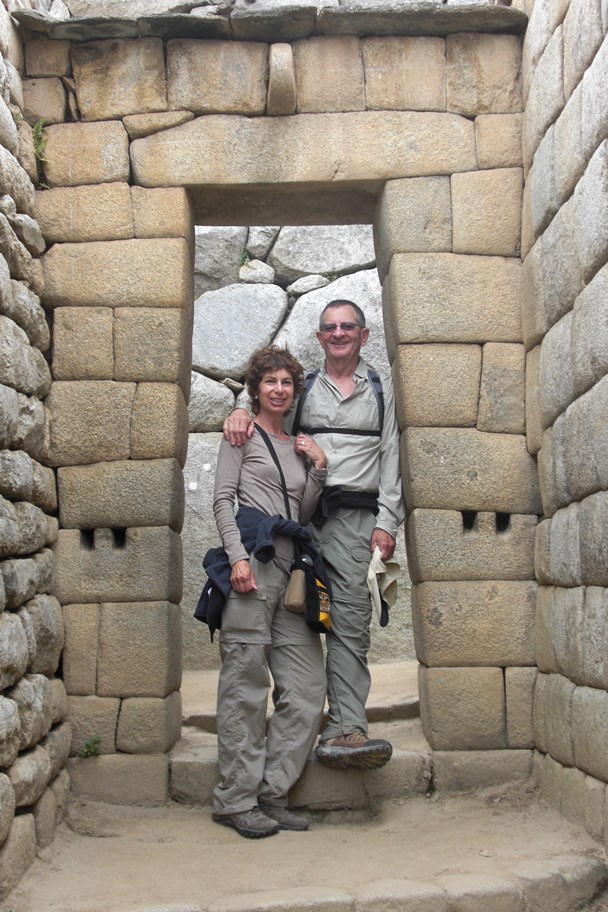The Inca Trail – Peru
We rush through our days, our weeks, our lives, to get ‘there,’ wherever ‘there’ is, to reach a specific destination or goal. Yet looking back, it seems that it’s often the journey that got us ‘there,’ that is often more memorable than the destination itself.
Northcliff, South Africa: I am a six-year-old, snuggled against my father’s strong sunburned chest. We are sitting beneath a black velvet canopy of a million stars. He puffs on his pipe, and the fragrance of tobacco wafts through the night air. My father, who has a passion for travel is a master storyteller, and tonight as he gazes out at the velvet night sky, he sees The Lost City of The Incas – Machu Picchu. The magic of his storybook description imprints itself on my soul, and I dream of seeing it with my own eyes.
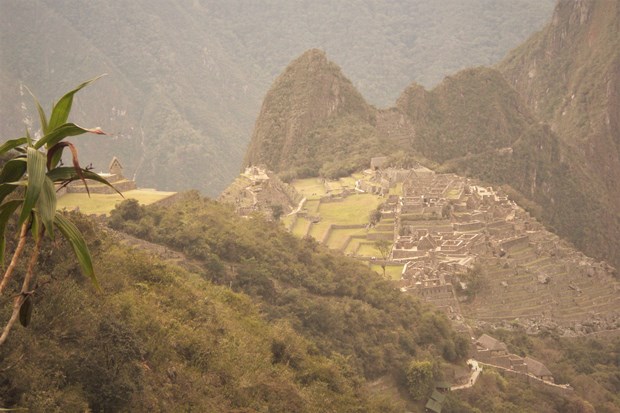
California – many years later. I’m on the operating table about to undergo back surgery. My last words to the neurosurgeon before I drift off to sleep are: “Dr. L. remember to fix this back so that it can carry me along the Inca Trail to Machu Picchu.”
Fast forward several years. We pass through the Inca Trail checkpoint, have our passports stamped, and embark on a journey to fulfill a childhood dream.
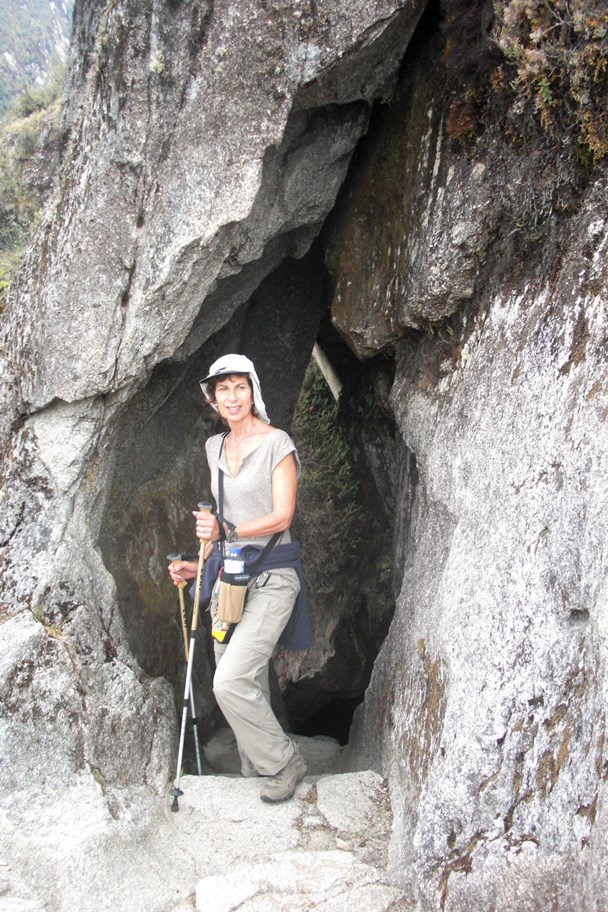
We are a group of eight led by our petite Quechua guide Disnarda, and fourteen sturdy stocky, porters with weather-beaten lined faces, who carry forty pounds on their backs. While we gasp for breath with each upward step, the porters seem to hover like butterflies skimming the ground’s surface, and quickly overtake us.
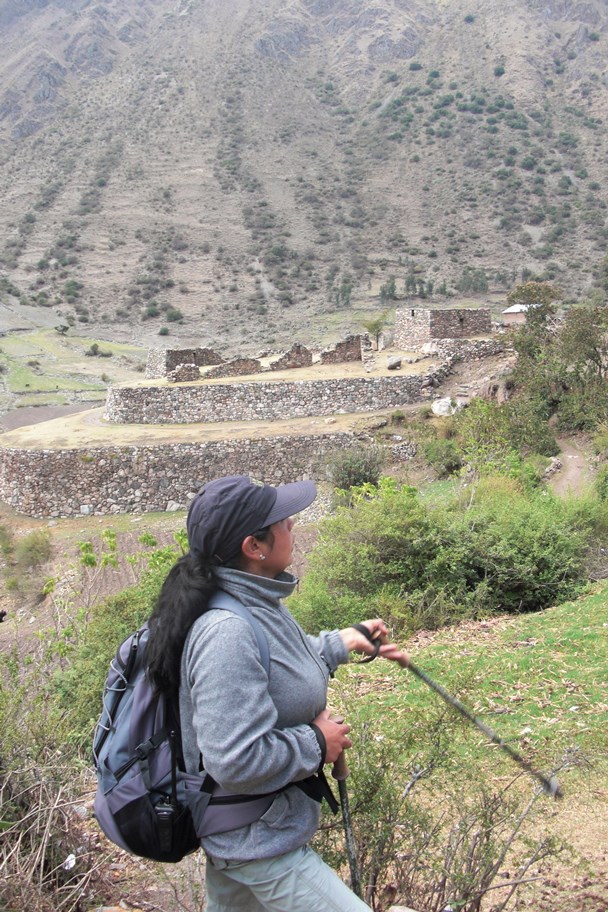
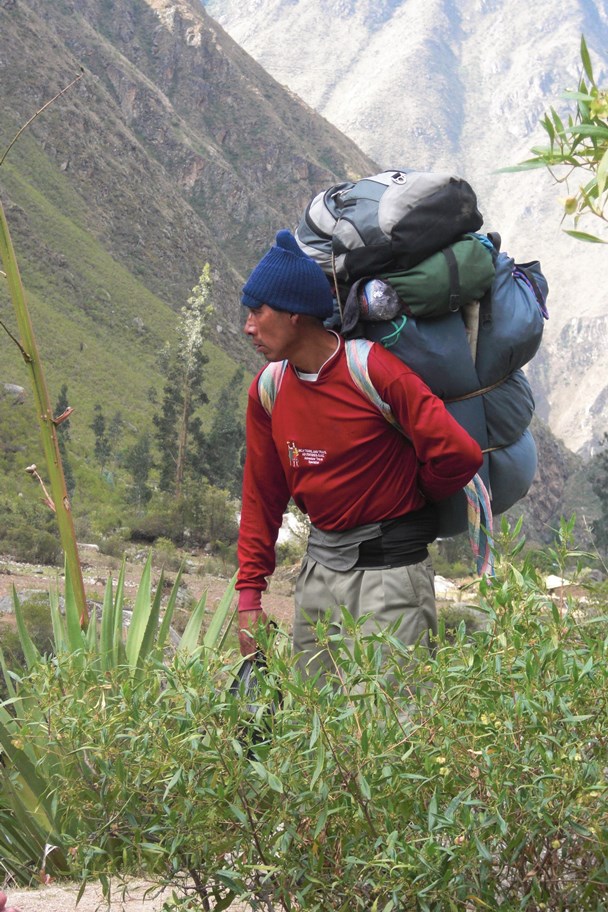
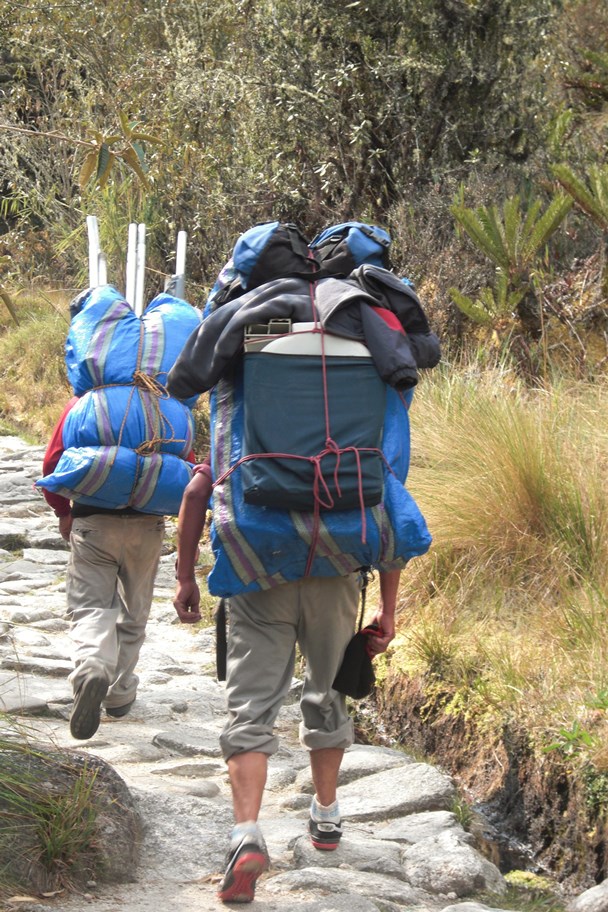
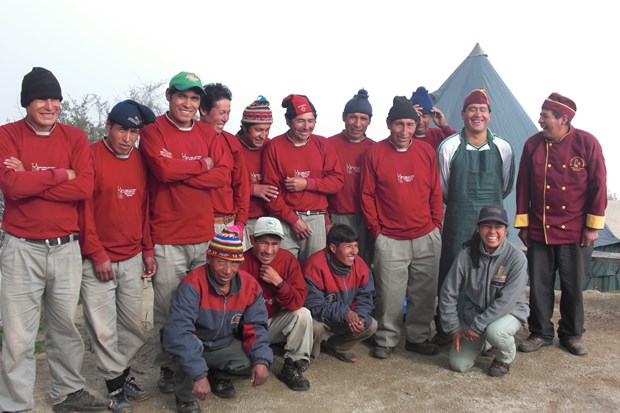
I am immediately smitten. This is a natural high. We are surrounded by the formidable Andes; the peace is absolute; the air – pure and sweet.
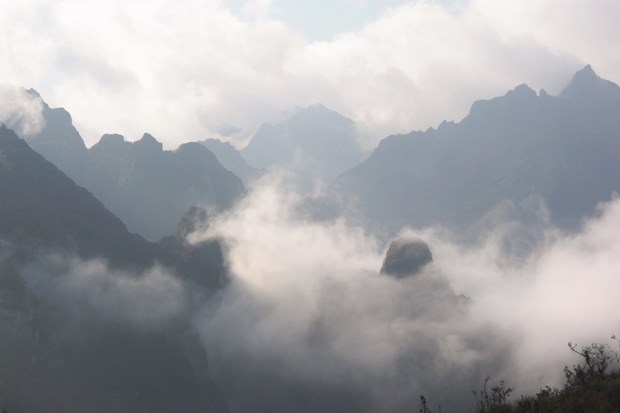
Disnarda is a knowledgeable, superb guide and natural leader, who commands the respect of all our porters. She sets a realistic pace and has an innate sense of how each member of the group is coping. Just when we feel we can’t take another step, she announces: “Ok, let’s astop.” She encourages us to sit in the shade, drink some water, and surprisingly after a few minutes of rest we are ready to go when she suggests: “Ok, let’s do a bit more.” A euphemism for let’s climb another few hundred narrow stone Inca ‘esteps’ (as she calls them) that are akin to a stairway to the sky.
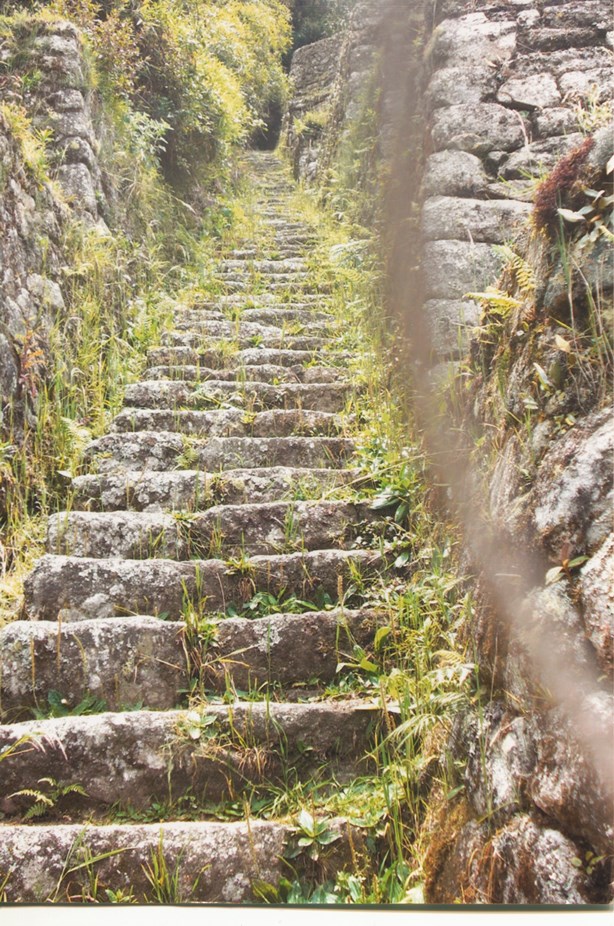
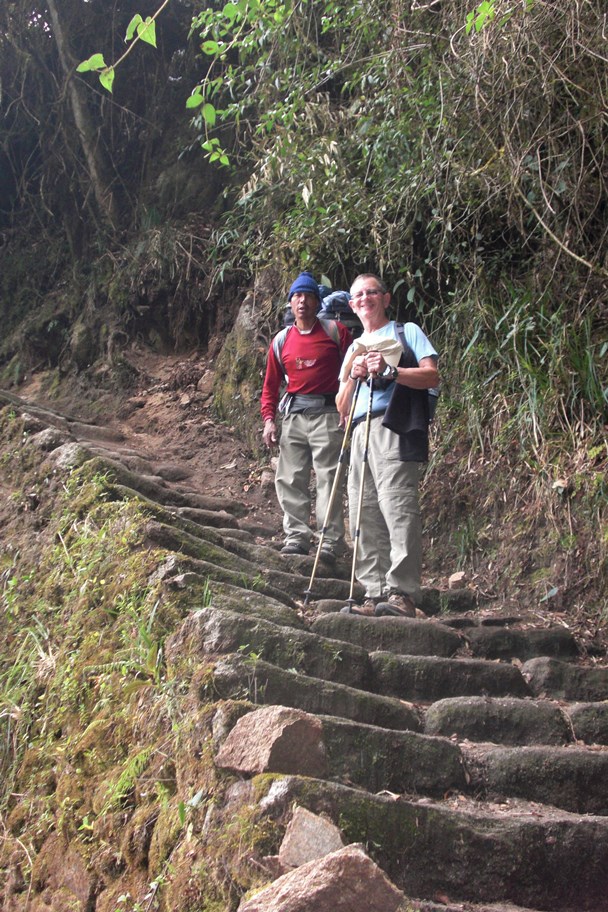
We pass through forests where bromeliads and wildflowers bloom; the ground is carpeted in vibrant colors; ferns thrive, and bright green moss clings to the rocks beside tumbling waterfalls.

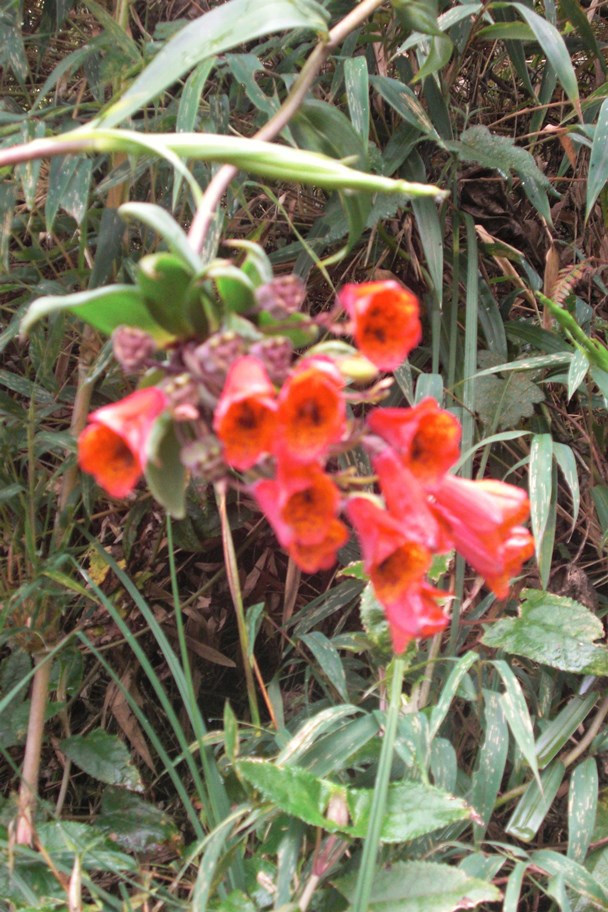
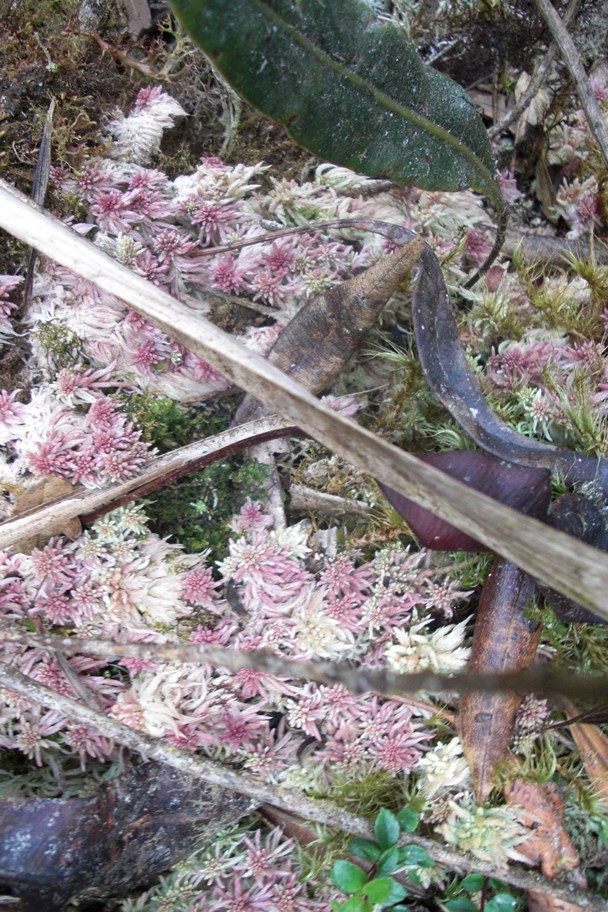
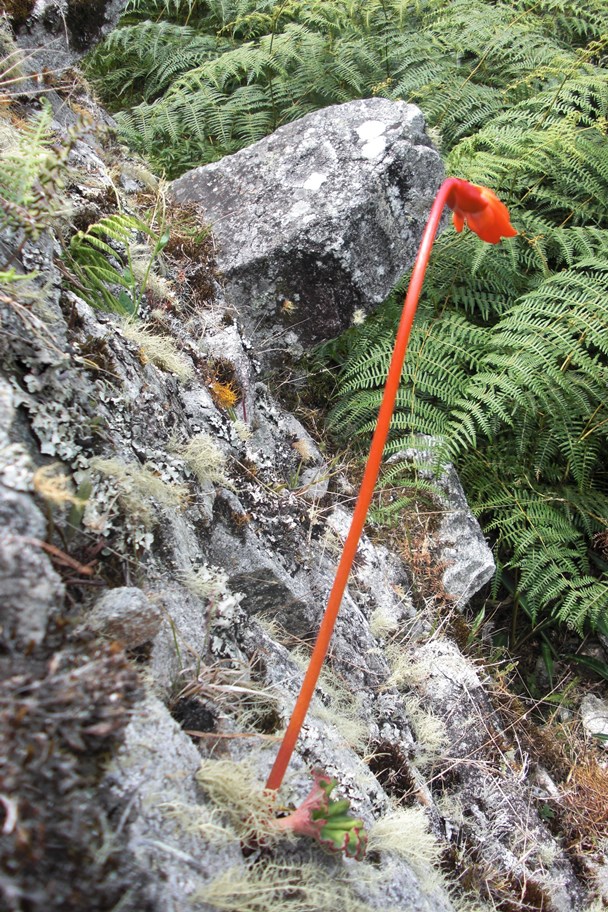
At lunchtime, when we reach the spot where the porters have erected a dining tent, we are hungry, hot, and elated. The meal prepared by Elmar, and his assistant Poncho, instantly endears them to us: Hot crusty rolls, a cheese platter, tomato, and cucumber salad, grilled chicken, vegetables and rice. That night they serve quinoa soup, grilled trout, and for dessert, bananas flambé with chocolate sauce. This is not exactly camp food!
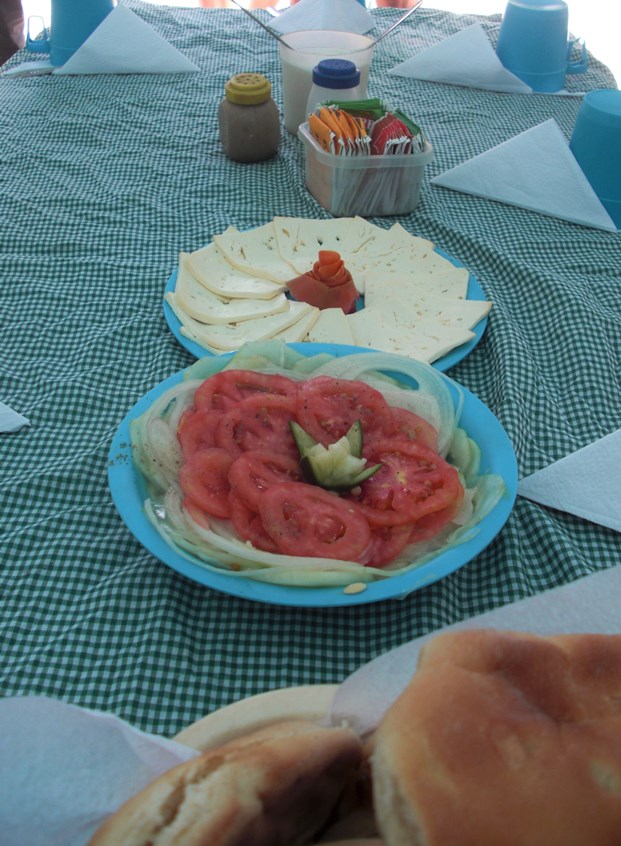
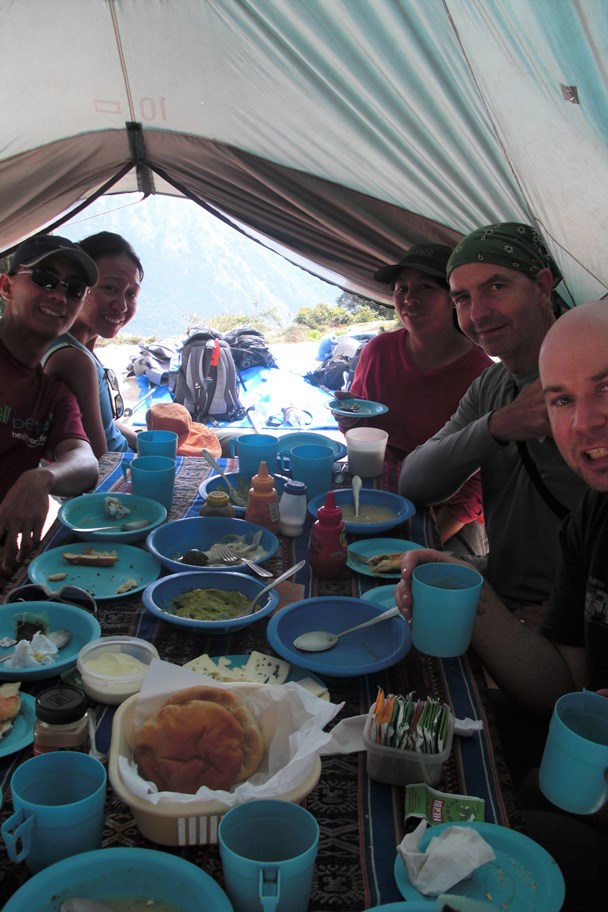
It doesn’t take long for our group to bond. No one is a chronic natterer, or complainer. There is an atmosphere of caring, support, friendship, and encouragement between the eight of us.
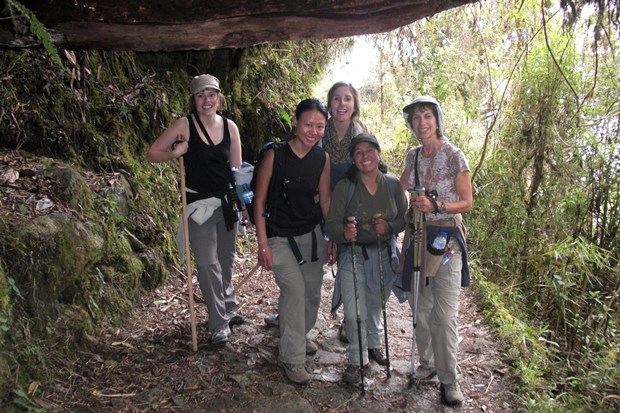
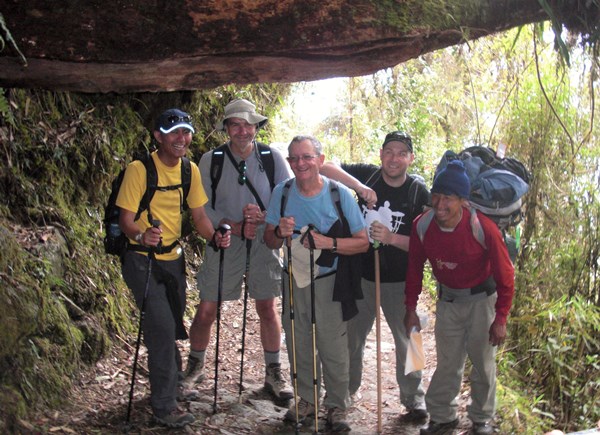
Day two, we climb from 10,000 feet to 14,200 feet where the clouds and mist swirl around us. We relish the accomplishment before beginning the descent: esteps, esteps, and more esteps, some so small and narrow that we have to take them sideways several at a time, using our hiking poles to lever ourselves down. I walk immersed in the moment, feeling the strength and an almost spiritual force emanating from the sacred Apus (mountains, revered by the Inca), which seem to hold me in a comforting embrace. “What have you witnessed on this path that we walk today? What stories could you tell?” I find myself asking of them.
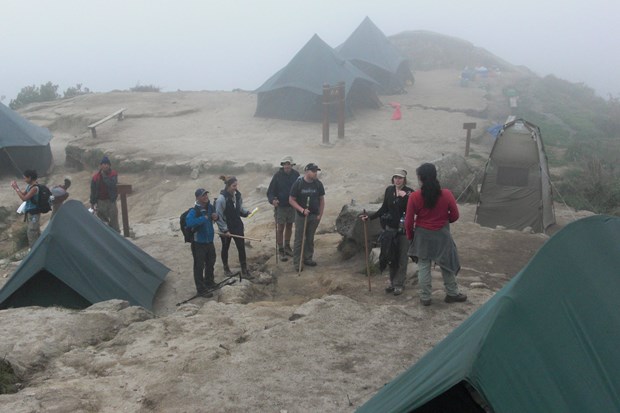
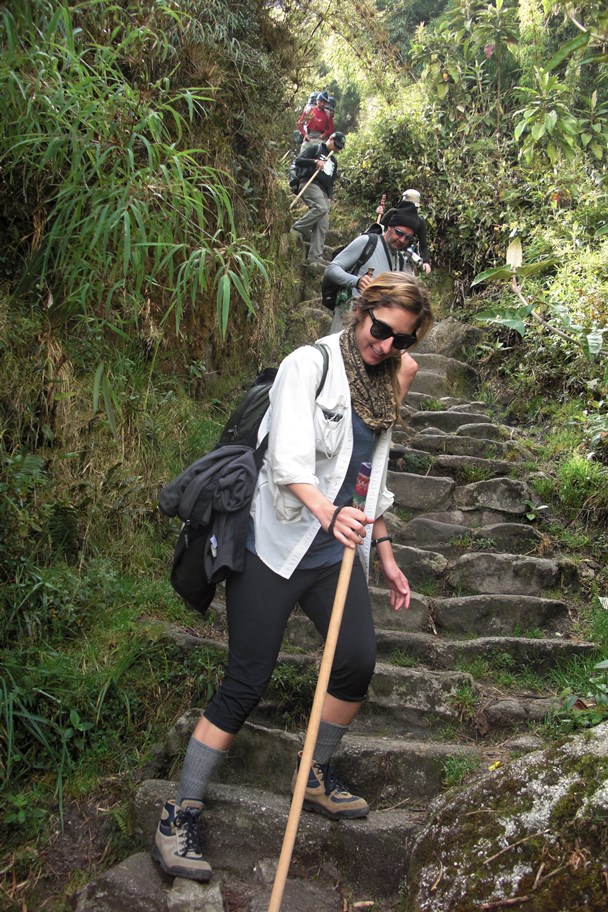
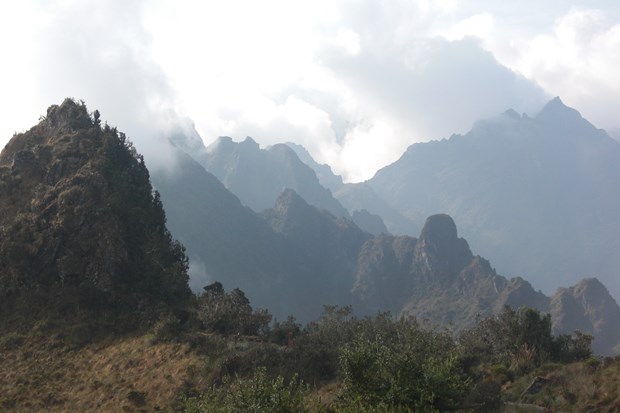
Day three is the most beautiful. We pass Inca wells where our porters draw water; hike through a cloud forest where orchids, fuchsias, and begonias grow in wild profusion; beards of moss hang off trees; the ground is covered in cognac-colored succulents, and the tree trunks are upholstered in pink and ivory vines. It’s a true Garden of Eden.
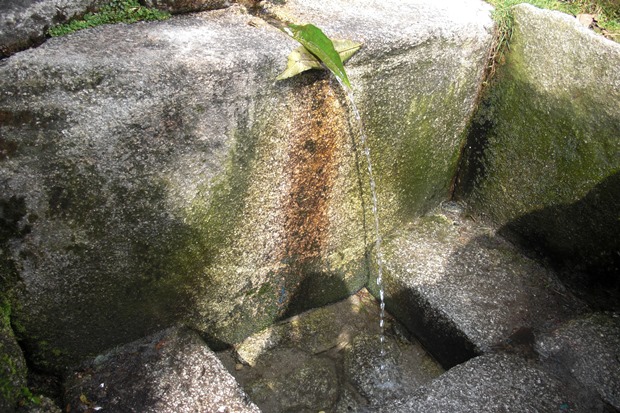
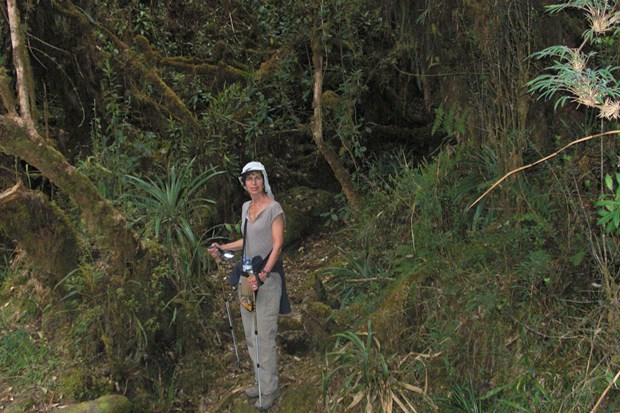
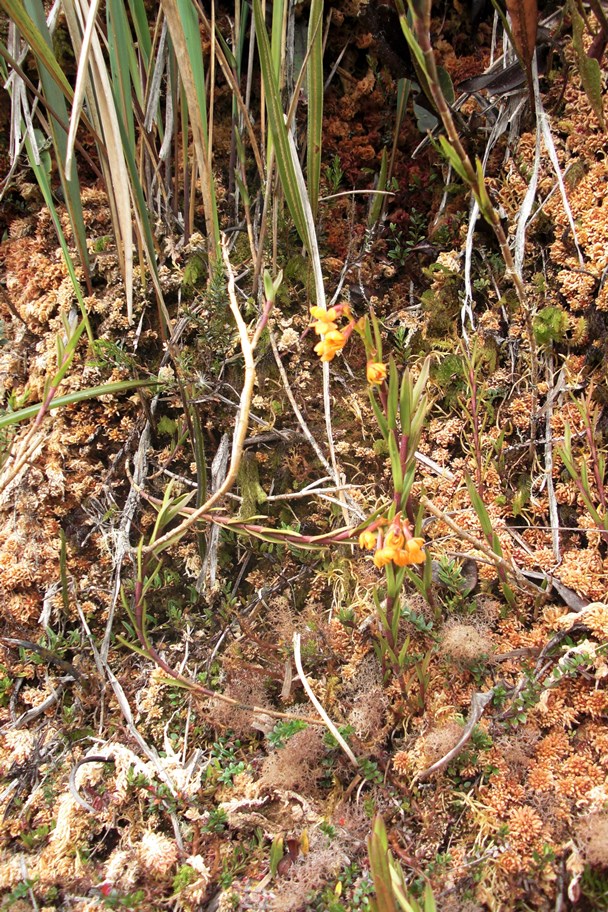
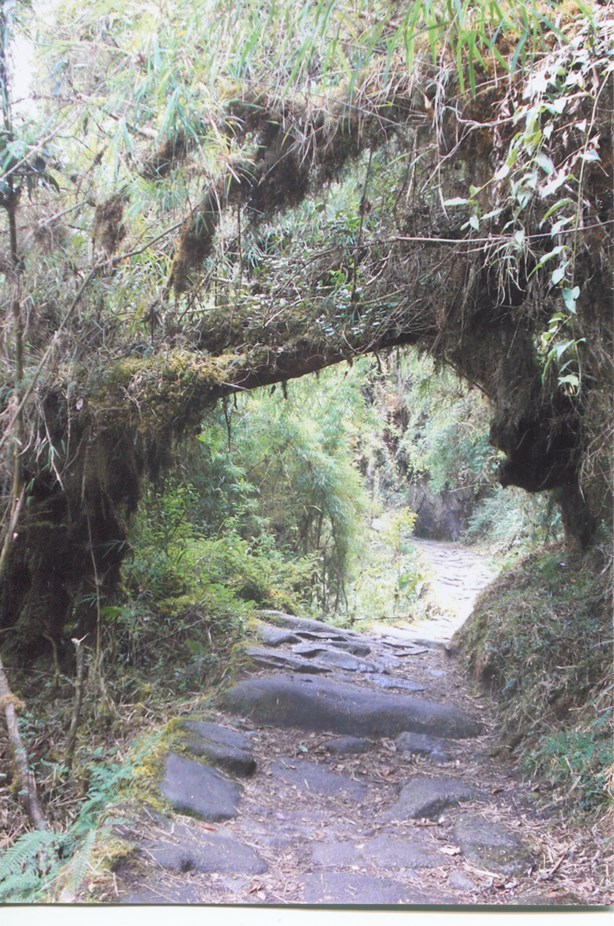
We come upon Runku Raqay – a circular structure thought to have functioned as a rest house where Inca chasquis (messengers) would rest and eat; Sayacmara (Inaccessible/Dominant town) a small town and sun temple; and an Inca tunnel carved through the rock
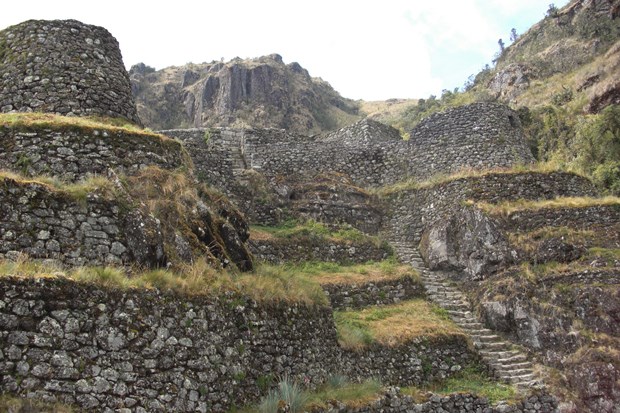
Runku Raqay
Day four, we discover a jewel – Phuyupatamarca (The City Above the Clouds). It sits silently and majestically shrouded in the morning mist, guarding its ritual baths and ancient secrets.
A few kilometers further, we reach the steep terraces and clusters of houses of Winay Wayna (Forever Young) which commands a spectacular view of the Urubamba River in the distance. Its scale, positioning, and architecture are breathtaking.

Phuyupatamarca (The City Above The Clouds)
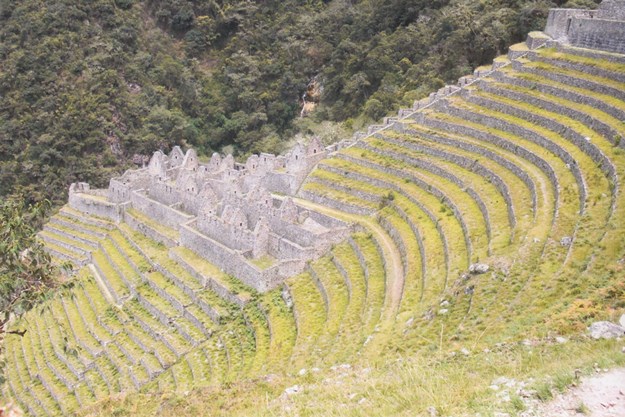
Winay Wayna
When we stop for our last camp-out lunch, a silence settles over us. One of sadness in the knowledge that our magical journey will soon end, yet one of great anticipation in knowing that the crown jewel lies ahead.
Two hours later, I’m walking lost in thought when I look up and see a wall of steps before me. Heart pounding, I scale them with a renewed spring in my step, reach a plateau, and there it lies before me: Machu Picchu – ‘The Lost City.’ Tears stream down my face, and I feel my father standing beside me. A child’s dream has come true. Together we stand and stare. (My father had died six years earlier from Alzheimer’s). I thank Dr. L. for fixing my back and getting me here, and I say a silent prayer of thanks for the courage to have undertaken this journey.

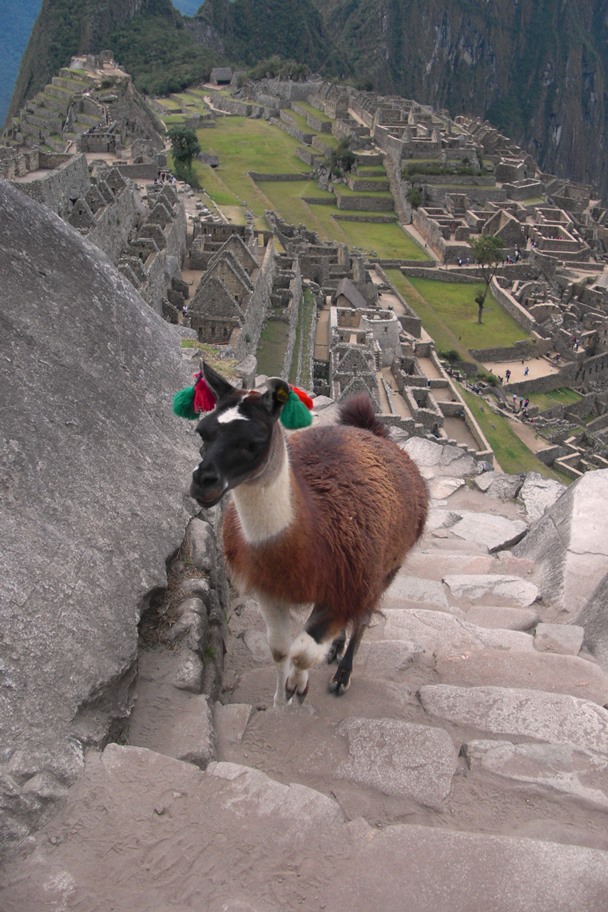
A Llama comes to greet us as we begin our descent to The Lost City Of The Incas.

